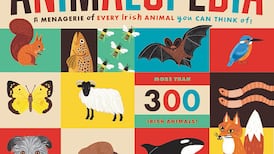
“We each have one, a literary canon, and we make it ourselves, not out of what is respectable or prestigious or prominent or lasting or moral or even well-made. We make it out of enthusiasms, out of what we love.”
Bestselling author Daniel Handler, resisting the idea of a “hegemonic pantheon”, invites us into his own personal canon in a sequence of 13 essays (a number he has made good use of in his guise as Lemony Snicket). B-movies and 1980s synth-pop sit comfortably next to a wide range of novels here, but it is the work of Charles Baudelaire that Handler constantly returns to. This not-quite-memoir grew from writing an introduction to a new translation of the poet’s most famous work, Les Fleurs du Mal, and the structure allows the author to dip in and out of his personal biography only insofar as it illuminates his artistic influences.
We don’t get anything as linear as a how-to-become-a-famous-writer tale here, though Handler is keen to show how writing works, at least for him. “If I remember some idea from a book, I reread the book like I am taking apart a clock, to figure out how it ticks.” He is at his best when describing the magic of literature – reading Nabokov turns the world “more elaborate in detail and experience” – with a resistance to “any of the subtle hierarchies by which pedants try to regulate art”, or what a college degree has tried to teach him about literary analysis.
Alongside this, though, there are some personal disclosures: persistent hallucinations, a childhood experience of sexual assault, a “problematic” relationship in his late teens. None of it is played for sympathy, and Handler is as itchy with pat morality as anyone who’s read any of his work might imagine, but it’s hard not to be haunted by the image of a boy “hurriedly pretending everything was OK”; hard, too, not to play armchair psychologist and wonder if an entire career of writing about terrible things happening to children stems from a single incident.
READ MORE
How neat that would be, but this thoughtful book – which is for the most part an eloquent celebration of the “jumpy enthusiasm” of story – frequently reminds us the world does not work this way.















